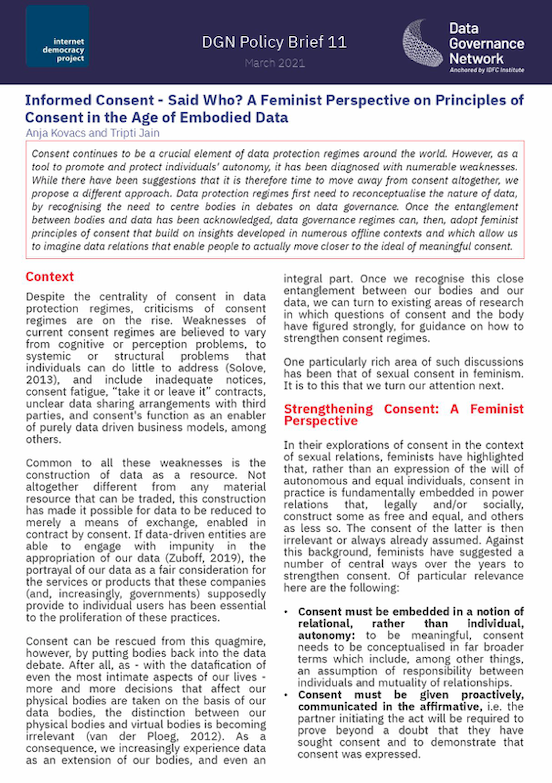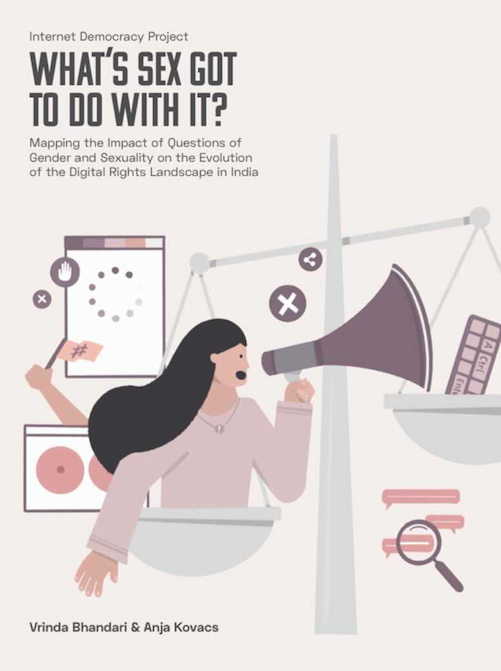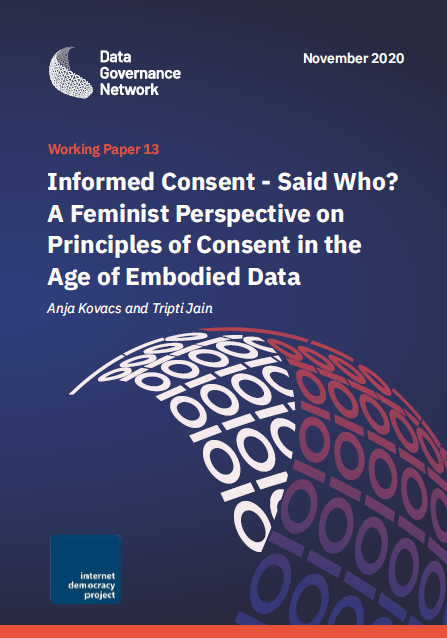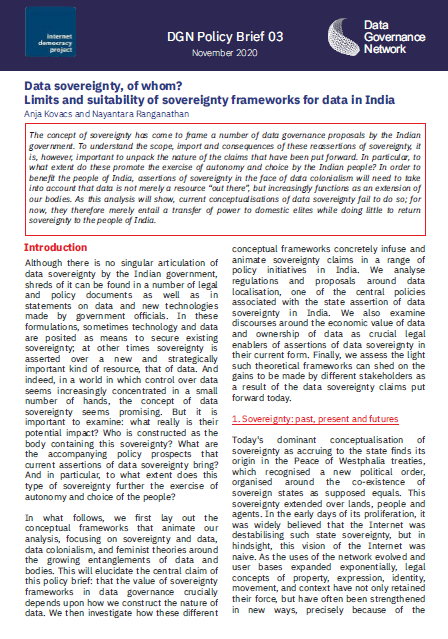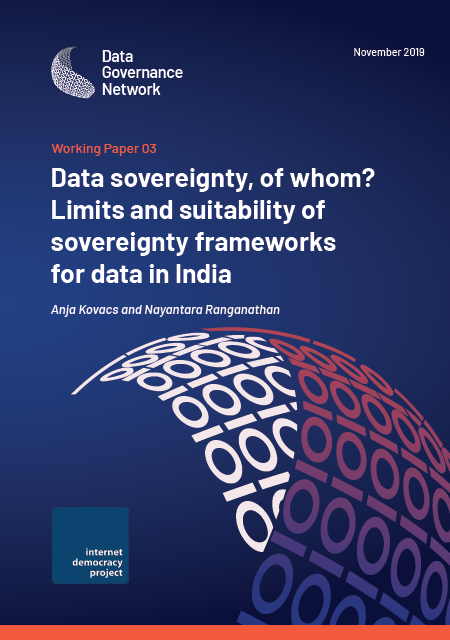Our work on bodies and data is featured on The Swaddle. Watch the videos and listen to the podcast here!
Dr. Anja Kovacs, Director of the Internet Democracy Project, was interviewed by The Swaddle, on reimagining the Internet and the political economy of data. In a conversation with Shrishti Malhotra, Producer at The Swaddle, she discussed using the feminist idea of consent to prevent data misuse, how anonymity can empower women online, and why we need to reimagine how data governance works. The Swaddle turned the interview into three short videos and an hour long podcast. Check them all out here. More
